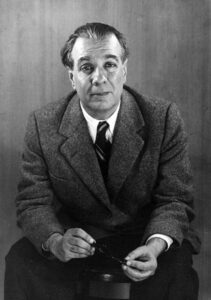2nd PUC English Question and Answer—I Believe that Books Will Never Disappear
Looking for 2nd PUC English textbook answers? You can download Chapter 9: I Believe that Books Will Never Disappear Questions and Answers PDF, Notes, and Summary here. 2nd PUC English solutions follow the Karnataka State Board Syllabus, making it easier for students to revise and score higher in exams.
Karnataka 2nd PUC English Textbook Answers—Reflections Chapter 9
I Believe that Books Will Never Disappear Questions and Answers, Notes, and Summary
2nd PUC English Chapter 9
I Believe that Books Will Never Disappear
Scroll Down to Download I Believe that Books Will Never Disappear PDF
Comprehension I.I Believe that Books Will Never Disappear
Question 1.
‘I was educated by my father’s library’ says Borges. He means
(a) school or the university did not educate him.
(b) he educated himself by reading on his own.
(c) he learned through private tuitions held in his father’s library.
Answer:
(b) he educated himself by reading on his own.
Question 2.
Why did Borges feel guilty about his mother?
Answer:
Borges feels guilty about his mother because he was not happy in his life and hence he could not give her the happiness she deserved.
Question 3.
According to the author, blindness is
(a) just a physical handicap.
(b) not a liability.
(c) is actually a resource
Answer:
(c) is actually a resource
Question 4.
What according to Borges is the ultimate function of writing?
Answer:
According to Borges. The function of writing is to bring happiness to the readers.
Question 5.
Why does Borges prefer to believe that he is not blind?
Answer:
Borges prefers to believe that he is not blind because he wants to accept his blindness as a way of life and enjoy it.
Question 6.
Borges feels that when we read a book what matters is not the author’s intention, but what sense we get out of it. True/False?
Answer:
True.
Question 7.
When does the poetic act happen, according to Borges?
Answer:
When precise words are used in the best order, then poetry is composed.
Question 8.
What cannot be defined without oversimplifying it?
Answer:
Poems cannot be defined without oversimplifying them.
Question 9.
Which is the most astounding invention of man?
Answer:
Books are the most outstanding inventions of man.
Comprehension II.I Believe that Books Will Never Disappear
Question 1.
What is the observation of Borges about his mother? Is it a common experience for everyone?
Answer:
Borges reflects on his mother as an extraordinary person who greatly influenced him. He acknowledges that she treated him with kindness, yet he took her for granted and failed to reciprocate her happiness. This experience is indeed common for many people.
Question 2.
What, in your opinion, does Borges learn from Goethe’s saying ‘all that is near becomes far’?
Answer:
Borges learns to accept his blindness with an optimistic perspective.
Question 3.
Can humiliation and misfortune be transmuted?
Answer:
Yes, humiliation and misfortune can be transmuted. Borges’ life serves as an example of how these negative experiences can be transformed into raw material for shaping a better future.
Question 4.
In what way do you think poetry is an aesthetic act?
Answer:
Poetry is an aesthetic act because it brings pleasure to readers. It offers peace and happiness to those who are sad and serves as inspiration for the discouraged. By focusing on the brighter side of life, poetry beautifully captures and describes the wonders of nature.
Question 5.
Why is it important for poetry to use language precisely? What example does Borges use to demonstrate this aspect of poetic language?
Answer:
Precise language is crucial in poetry because it is a magical, mysterious, and often unexplainable form of expression. If a reader does not connect with the poem, it can be seen as a failure. Therefore, poets must choose their words carefully. Borges illustrates this with Emily Dickinson’s line, “This quiet dust was gentlemen and ladies.” Although the idea is not new, her unique phrasing adds a fresh style that Borges greatly appreciates.
Question 6.
Why does Borges say that books will not disappear despite modern modes of communication?
Answer:
Borges argues that books are extensions of our imagination and memory, which is why they will not disappear even in the age of modern communication. Additionally, books provide happiness and enjoyment to readers, ensuring their lasting presence in our lives.
Comprehension III. I believe that Books Will Never Disappear
Question 1.
‘A book goes beyond its author’s intention.’ Do you agree?
Answer:
Yes, I agree. When a book is written, readers interpret it based on their own perceptions rather than solely on the author’s intentions. Although the author may have had a specific perspective while writing, once a reader engages with the book, their interpretation takes precedence. Therefore, books are often understood through the lens of the reader’s experiences and opinions rather than just the author’s original intent.
Question 2.
‘Poetry is magical, mysterious, and unexplainable.’ How does Borges explain the strange aspect of poetry?
Answer:
Borges explains that poetry cannot be fully understood without oversimplifying its essence. For instance, to convey love, a poet might use the image of a rose as its symbol; to depict old age, they might choose yellow autumn leaves. The poetic act occurs when the poet carefully selects the best words and arranges them skillfully.
Once the poem is written, the reader must interpret it, which can lead to varying understandings of the same concepts. Since no one can definitively define what poetry is, it remains magical, mysterious, and unexplainable.
Question 3.
What value does Borges see in literature? Why is it important for the future of mankind?
Answer:
Borges states, “Every man feeds it, every man reads it. Time cannot age it and death cannot slay.” This quote highlights the eternal value of literature, emphasizing that its function is irreplaceable. If books were to disappear, there would be no world left to interpret, underscoring literature’s vital role in shaping human understanding and culture for the future.
I Believe that Books Will Never Disappear
Additional Questions and Answers
Question 1.
Which was the first literary book read by Borges?
Answer:
The first literary book read by Borges was “Fairy Tales” by the Brothers Grimm, in an English version.
Question 2.
Where did Borges get much of his education?
Answer:
Borges received much of his education in his father’s library.
Question 3.
What is a resource according to Borges?
Answer:
According to Borges, a resource is anything that a person takes positively to move forward and achieve their goals.
Question 4.
“All that is near becomes far.” This line is taken from:
(a) Homer
(b) Goethe
(c) Grimm
Answer:
(b) Goethe
Question 5.
Who supports the statement “A book goes beyond its author’s intention”?
Answer:
This statement is supported by Bernard Shaw’s assertion that “Every book worth being re-read has been written by the spirit.”
Question 6.
What is poetry according to Borges?
Answer:
According to Borges, poetry is something deeply intimate and essential that cannot be defined without oversimplifying its nature.
Question 7.
What are ‘Metaphors’ in literature?
Answer:
Metaphors are implicit comparisons made without using “as” or “like.” For example, in the phrase “He is a lion in a fight,” the term “lion” refers to his bravery and strength.
I Believe that Books will Never Disappear Summary
The lesson “I Believe That Books Will Never Disappear” is drawn from Twenty-Four Conversations with Borges, where journalist Roberto Alifano interviews Jorge Luis Borges, the esteemed poet and writer.
In this extract, Borges shares his thoughts on literature, noting that his first literary reading was “Grimm’s Fairy Tales” and that his father’s library provided more education than any university. He reflects on his mother’s kindness, realizing her importance only after her death.
Despite his blindness, Borges maintained a positive outlook, viewing challenges as stepping stones to success. He asserts that humiliations and misfortunes can fuel creativity, and he continued to engage with books throughout his life.

Borges warns against blindly following cultural trends, viewing books as sacred and magical sources of happiness. He expresses a desire to write a “book on the history of books,” finding fulfillment in the attempt, even at 83.
Describing poetry as an intimate and complex art, Borges emphasizes the importance of precise language and metaphors. He believes literature enhances imagination and memory, concluding that books play an irreplaceable role in sustaining meaning in the world.

